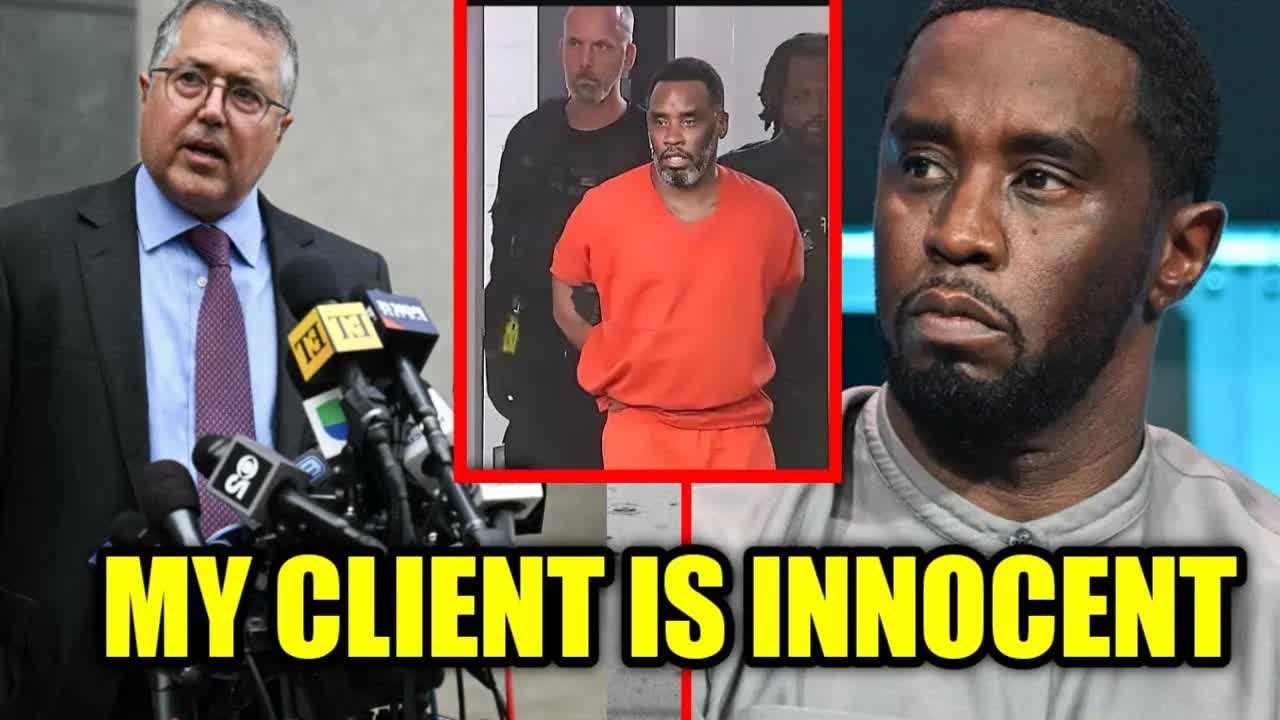In a dramatic twist in the ongoing saga surrounding Sean Diddy Combs, the music mogul finds himself embroiled in a whirlwind of sual misconduct allegations that seem to be multiplying by the day.
His legal team is now seeking clarity on the identities of his accusers, arguing that the unique circumstances of this case—particularly Diddy’s celebrity status and immense wealth—necessitate such transparency.
According to court documents filed by his attorneys, the flood of accusations from anonymous complainants ranges from dubious to outright ridiculous.
The legal representatives assert that these unverified claims have created an environment so chaotic that it threatens to undermine Diddy’s right to a fair trial.
They argue that the media frenzy surrounding these allegations has spiraled out of control, causing significant harm to their client’s reputation.
The controversy took a sharper turn when Texas attorney Tony Busby revealed that he has been approached by at least 120 individuals alleging misconduct by Diddy.
Recently, six of Busby’s clients filed anonymous complaints detailing incidents of sual assault, adding fuel to the already roaring fire of public scrutiny.
Diddy was arrested last month, facing serious charges including s trafficking, racketeering, and transporting individuals for prostitution.
Prosecutors allege that he orchestrated a criminal enterprise that coerced women into participating in elaborate sual scenarios for his enjoyment.
Disturbingly, there are claims that these women endured not only physical but also emotional and psychological abuse, with leaked footage purportedly showing Diddy violently assaulting his ex-partner, Cassie Ventura.
While Diddy has pleaded not guilty to all charges, the number of alleged victims continues to grow, with some choosing to remain anonymous.
His legal team insists that without knowing the specific allegations against him, Diddy cannot adequately prepare his defense.
They emphasize that he is only aware of one accuser, referred to as “victim 1,” leaving him in a precarious position as he navigates the legal landscape.
Among the new allegations is a lawsuit filed by Ashley Parham, who claims that Diddy violently raped her at knifepoint.
Parham’s chilling account details how she first connected with the rapper in 2018 through a mutual acquaintance.
According to her, their paths crossed again at Diddy’s California home, where she alleges he threatened her with a knife and subjected her to horrific acts of violence and sual assault.
Parham’s graphic description of events includes claims that Diddy poured a liquid substance over her body, attempted to use a foreign object for sual purposes, and even invited friends to participate in the assault.
The severity of her allegations paints a troubling picture of Diddy’s behavior during the encounter.
In the aftermath of the alleged attack, Parham claims she reached out to multiple law enforcement agencies, including the Contra Costa Sheriff’s Department, but feels her allegations were not taken seriously or investigated thoroughly.
This raises pressing questions about the accountability of those in power and the treatment of victims seeking justice.
As new lawsuits continue to surface, Diddy is now facing an escalating array of accusations, including rape, sual abuse, and sual assault.
While some of his lawyers have categorically denied these claims, asserting that he has never committed any form of sual assault against anyone, the sheer volume of allegations presents a daunting challenge for the rapper.
The unfolding situation not only highlights the complexities of celebrity culture but also underscores the need for a robust legal process that ensures both accountability and fairness.
With Diddy at the center of this storm, the implications of these allegations extend far beyond his personal life, touching on broader societal issues regarding power dynamics and the treatment of survivors.
As the legal battle progresses, the public watches closely, awaiting further developments.
The outcome will not only determine Diddy’s fate but could also set significant precedents in how similar cases are handled in the future.










